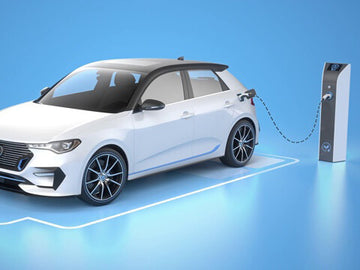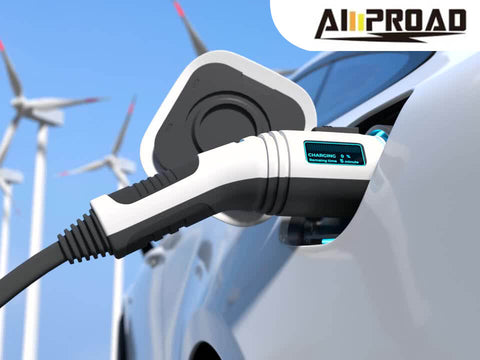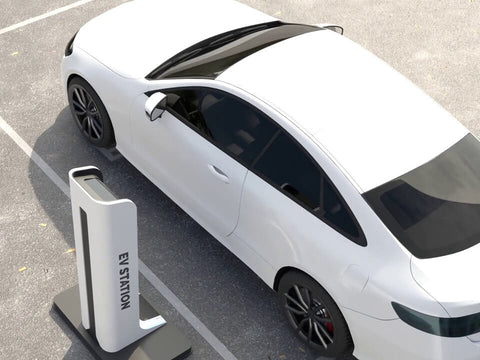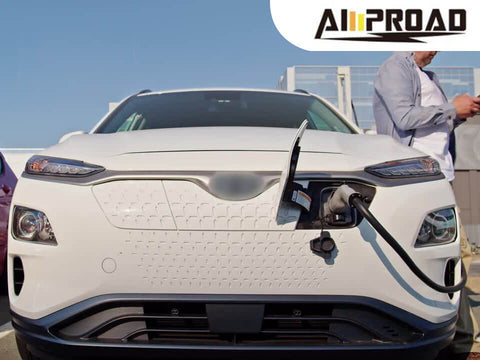
Choosing the right EV charger can feel overwhelming, but it doesn't have to be! By considering a few key factors, you can ensure you select the perfect match for your electric vehicle and charging needs. This guide will walk you through essential questions to ask yourself about charger types, features, safety, and cost. With a little planning, you'll be on your way to a smooth and convenient EV charging experience.
Understanding Your Needs
When diving into the world of electric vehicle (EV) charging, understanding your specific requirements is crucial. Let's break down the key questions to help you navigate your needs effectively.
What type of EV charger do you need (Level 1, Level 2, DC Fast Charger)?
Determining the right charger type is the first step in your EV charging journey. Are you looking for a Level 1 charger that plugs into standard household outlets for slow, overnight charging? Or perhaps a Level 2 EV charger for faster home charging, requiring installation by an electrician? Alternatively, do you need the rapid charging capabilities of a DC Fast Charger for long trips and public charging stations?
What installation way of EV charger are you looking for?
Once you've decided on the charger type, it's essential to consider the installation method that best suits your needs. Are you envisioning a wall-mounted charger for convenient home use, a versatile portable EV charger for both home and travel, such as AMPROAD ev chargers, or would a pedestal-mounted charger better suit your outdoor or public space requirements? Assessing your space and accessibility will help determine the most practical installation option.
What is the typical charging range needed for your usage?
Understanding your typical driving patterns is crucial in estimating your charging range needs. Take a moment to evaluate the average distance you travel daily and consider any longer trips you may take. This assessment will help determine the charging capacity required to meet your lifestyle demands effectively.
How many EVs will this charger be used for?
If you have multiple electric vehicles in your household or plan to provide charging facilities for multiple users, it's essential to assess the charger's capacity accordingly. Determine how many EVs the charger needs to accommodate to ensure efficient charging for all vehicles. This consideration prevents potential bottlenecks and ensures a smooth charging experience.
Is smart charging functionality important (scheduling, energy monitoring)?
Smart charging functionalities offer added convenience and efficiency. Are features such as scheduling charging times to optimize energy usage and monitoring energy consumption remotely important to you? Evaluate the importance of these features based on your lifestyle and preferences to select a charger that meets your needs effectively.
By addressing these key questions, you can make informed decisions when choosing an EV charger that aligns with your requirements and enhances your overall EV ownership experience.
Charger Features and Functionality
When selecting an EV charger, considering its features and functionality is essential to ensure a seamless charging experience. Let's delve into the key aspects to look for:
Does the charger offer the power output (kW) I need?
One of the primary considerations is the power output of the EV charger. Assess whether the charger provides the necessary kW output to meet your vehicle's charging requirements efficiently. Choosing a charger with an appropriate power output ensures optimal charging speed and performance.
Is the cable length sufficient (tethered charger) or is a universal connector needed (untethered)?
Evaluate the cable length of the charger, especially if opting for a tethered charger with a built-in cable. Ensure that the cable length is sufficient to reach your vehicle's charging port comfortably. Alternatively, consider an untethered charger that allows for the use of a universal connector, providing flexibility in cable length and compatibility with different vehicles.
Does the charger have weatherproof durability for outdoor installation?
For chargers intended for outdoor installation, weatherproof durability is crucial to withstand various environmental conditions. Look for chargers with robust construction and weatherproof ratings to ensure reliable performance and longevity, even when exposed to elements such as rain, snow, and sunlight.
Are there any additional features I require (remote control, LED status lights)?
Consider any additional features that may enhance your charging experience. Features such as remote control capabilities, allowing you to monitor and control the charger remotely, can add convenience and flexibility to your charging routine. LED status lights provide visual indicators of the charging status, making it easy to monitor the progress at a glance.
By considering these features and functionalities when selecting an EV charger, you can ensure that it meets your specific needs and preferences, providing efficient and reliable charging for your electric vehicle.
Safety and Certifications
Does the manufacturer comply with safety standards (ETL, UL, CE)?
It's essential to ensure that the manufacturer of your EV charger adheres to industry safety standards. Look for certifications such as ETL, UL, or CE, which demonstrate compliance with rigorous safety requirements. For instance, the AMPROAD ETL certified portable EV charger provides assurance of safety and quality, meeting stringent standards for electrical safety.
Is there a history of recalls or safety incidents with the charger model?
Before making a purchase, research the charger model's safety record. Check for any history of recalls or safety incidents associated with the charger to ensure its reliability and safety. Choosing a charger with a clean safety track record minimizes the risk of potential hazards and ensures peace of mind during charging.
Manufacturer Reputation and Experience
When choosing an EV charger, the reputation and experience of the manufacturer play a significant role. Here's what to consider:
How long has the manufacturer been in business?
The longevity of a manufacturer in the EV charging industry can indicate stability and reliability. Consider opting for manufacturers with a track record of longevity, as they are more likely to have established processes and expertise in producing quality chargers. Look for manufacturers with several years of experience in the industry.
Do they have a proven track record of quality and reliability?
Evaluate the manufacturer's track record in terms of the quality and reliability of their products. Research customer feedback, reviews, and any reports of product defects or malfunctions. A manufacturer with a proven track record of consistently producing high-quality and reliable chargers is more likely to provide a satisfactory charging experience.
What kind of warranty is offered on the charger?
A warranty offers protection and assurance for your investment in an EV charger. Check the warranty offered by the manufacturer and pay attention to its coverage period and terms. A longer warranty period typically reflects the manufacturer's confidence in the charger's durability and reliability. Opt for chargers that come with comprehensive warranty coverage to safeguard against potential issues.
Are there positive customer reviews and industry endorsements?
Customer reviews and industry endorsements can provide valuable insights into the reputation of the manufacturer and the performance of their chargers. Look for chargers with positive feedback from customers regarding their functionality, durability, and customer support. Additionally, industry endorsements or certifications from reputable organizations can further validate the manufacturer's reputation and the quality of their products.
By considering these factors related to the manufacturer's reputation and experience, you can make an informed decision when selecting an EV charger, ensuring reliability, quality, and customer satisfaction.
Additional Considerations
Beyond the basic features, several additional factors can influence your decision when choosing an EV charger:
Does the manufacturer offer technical support and after-sales service?
Prompt and reliable technical support can be invaluable if you encounter any issues with your EV charger. Look for manufacturers that offer accessible customer support channels, such as phone or email, and ensure that they provide comprehensive after-sales service to address any maintenance or troubleshooting needs.
Is the charger compatible with any existing charging networks?
Compatibility with existing charging networks can enhance the versatility and convenience of your EV charging experience. Check whether the charger is compatible with popular charging networks or platforms, allowing you to access a broader network of charging stations and streamline your charging process, especially during long trips or travel.
What is the overall cost of the charger, including installation?
Consider the overall cost of the charger, including not only the initial purchase price but also any installation costs. Factor in expenses such as electrical upgrades or professional installation services, as these can significantly impact the total cost of ownership. While opting for a budget-friendly option may seem appealing, prioritize quality and reliability to ensure a satisfactory long-term investment.
By addressing these additional considerations, you can ensure that your chosen EV charger meets your specific needs and preferences while providing a reliable and convenient charging solution for your electric vehicle.
Making Your Decision

As you weigh your options for EV chargers, consider the following:
How do the different charger options compare based on your needs?
Evaluate each charger option based on its compatibility with your vehicle, charging speed, and features. Consider factors such as power output, installation requirements, and additional functionalities like smart charging capabilities. Compare these aspects to determine which charger aligns best with your specific requirements and preferences.
Is there a clear winner, or are there trade-offs to consider?
While one charger option may stand out as the most suitable choice, there are often trade-offs to consider. A charger with fast charging capabilities may come at a higher cost, while a more budget-friendly option may lack certain features. Assess the trade-offs between charging speed, price, and features to determine the best balance for your needs and budget.
What factors hold the most weight in your final decision?
Identify the factors that hold the most significance for you in your decision-making process. Whether it's prioritizing charging speed, reliability, or affordability, determining your key priorities can help streamline your decision. Consider factors such as warranty coverage, manufacturer reputation, and compatibility with existing infrastructure to make an informed choice.
In your decision-making process, remember to consider AMPROAD, a North American brand and manufacturer known for its quality and reliability in the EV charging industry. By carefully evaluating your options and prioritizing your needs, you can select the right EV charger to meet your requirements and enhance your electric vehicle ownership experience.
FAQs / People Also Ask
Q: What are the different types of EV chargers available?
A: There are three main types of EV chargers: Level 1, Level 2, and DC Fast Chargers. Level 1 chargers are plugged into standard household outlets and provide a slow charge, while Level 2 chargers offer faster home EV charging and require installation by an electrician. DC Fast Chargers provide rapid charging for long trips and public charging stations.
Q: How do I determine the right charger for my electric vehicle?
A: Consider factors such as your typical driving habits, the charging range needed, and the installation options available. Assess whether you need a charger for home use or public charging, and evaluate features such as power output and compatibility with your vehicle.
Q: What safety certifications should I look for in an EV charger?
A: Look for chargers that comply with safety standards such as ETL, UL, or CE certifications. These certifications ensure that the charger meets rigorous safety requirements and standards for electrical safety.
Q: Are there any additional features I should consider when choosing an EV charger?
A: Additional features such as smart charging functionality, weatherproof durability for outdoor installation, and compatibility with existing charging networks can enhance your charging experience. Evaluate which features are important to you based on your lifestyle and preferences.
Q: How do I ensure that the charger I choose is reliable and of high quality?
A: Research the manufacturer's reputation, including their track record of quality and reliability, customer reviews, and any history of recalls or safety incidents associated with the charger model. Opt for chargers with positive feedback from customers and industry endorsements to ensure reliability and quality.




